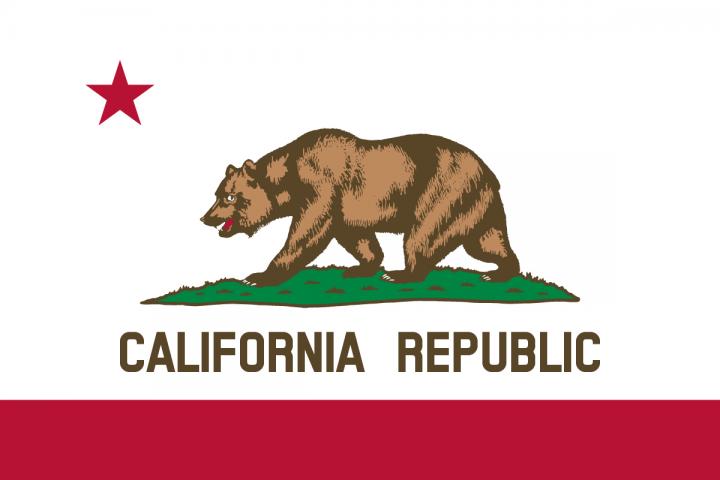Thanks to everyone who took part in this campaign, SB-403 was vetoed on October 7, 2023!
View how all CA legislators voted on SB-403 here
South Asian Californians make up less than 2% our state’s population. They contribute positively to our communities, economy, essential services, and more. But Senate Bill 403 calls South Asians bigots, bullies, rapists, human traffickers, even murderers to justify an assault on their rights to equal protection under the law.
SB-403 will:
Change California nondiscrimination law to have a clause that in practice applies only to South Asians
Fundamentally alter the rights to equal protection and due process of only South Asians
Attribute guilt on the basis of a South Asian ancestry and a status of “oppressor”
LEARN MORE
SB-403 makes ugly and unsubstantiated claims about South Asians engaging in harassment, bias, wage theft and caste discrimination in various sectors, including education, employment, housing, as well as in human trafficking and gender, physical and psychological violence. SB-403, on its face, maligns only South Asian Californians and treats them in a manner that is different from every other racial and ethnic group as a matter of policy.
Perspectives
Resources
Best solution to caste-based discrimination in the US is existing law
National origin, ancestry, and ethnicity have been interpreted as protecting against discrimination on the basis of birthplace, ancestry, culture, or linguistic characteristics — all of which are social markers associated with the various theories about caste.
The racist history of the caste system
The idea of an Indian caste system, as an unchanging, oppressive, and hereditary social hierarchy that is religiously mandated by and for Hindus, is the product of European conceptions about Indians and Hinduism.
There's no universal definition of caste
Caste is one of the most complicated and misunderstood concepts encountered when attempting to understand India and Hinduism. Part of the challenge is that there is no universally accepted definition nor is there a uniformly held understanding of it.
Caste in India and caste in the US: What we’ve learned from latest two surveys
95% of Indian Americans — regardless of religious affiliation — have not experienced any discrimination based on caste in the preceding year, according to the Carnegie Endowment survey.
HAF's June 2023 Opposition Letter
The following letter opposing the amended version of SB403 was sent to all Assembly Judiciary Committee members on June 29, 2023. With the opposition letter, HAF’s legal team proposed amendments to broaden protections for various forms of intra-ethnic or intra-racial discrimination with facially neutral terms that would further clarify the existing category of ancestry as well as address equal protection concerns by striking all references to caste, South Asia, Asia, South America and Africa.
HAF's April 2023 Opposition Letter to SB403
The Honorable Aisha Wahab
1021 O Street, Suite 6530
Sacramento, CA 95814
Phone: (916) 651-4410
Subject: SB-403 – OPPOSE
Dear State Senator Wahab:
The Hindu American Foundation, the oldest and largest 501(c)3 nonprofit Hindu American education and civil rights organization, strongly opposes SB-403 as amended on April 17, 2023, because its legislative intent and impact are discriminatory and unconstitutional. As an attorney-led organization, we are particularly concerned that SB-403, on its face and in implementation, will require the denial of fundamental rights to equal protection, due process, privacy and association of only South Asian Californians, the vast majority of whom are of Indian origin, and other vulnerable ethnic communities of color.
We share the admirable goals of protecting civil rights and eliminating all forms of prejudice and discrimination, including based on caste. As such, the question is not whether we deal with allegations of caste discrimination, but how. If and when caste discrimination allegations emerge, they should be adjudicated under the existing protected class of ancestry, just as the state of California did in California Department of Fair Employment Housing v. Cisco Systems, Inc.
SB-403 Denies South Asian Californians Equal Protection Under the Law
Laws must be impartial and apply to all equally. SB-403 unfairly targets and maligns South Asian Californians for disparate treatment on the basis of their national origin, ethnicity and ancestry, thereby undermining the very laws it seeks to amend.
The most recently amended SB-403 continues to ethnically profile and stigmatize South Asian Californians, the obvious intended target of the bill. South Asia is mentioned at least three times and South Asians both in South Asia and in the U.S. (diaspora) are, as a group, declared to engage in “caste discrimination.” South American, Asian and African Californians are also vilified as monolithic ethnic entities through SB-403’s declaration of their purported participation in “similar” discriminatory systems. (See Section 1(b) – (e)).
SB-403 makes ugly and unsubstantiated claims about South Asians engaging in harassment, bias, wage theft and caste discrimination in various sectors, including education, employment, housing, as well as in human trafficking and gender, physical and psychological violence. SB-403, on its face, maligns only South Asian Californians and treats them in a manner that is different from every other racial and ethnic group as a matter of policy.
SB-403 also creates an additional suspect class of permanent suspects. If there exists a group of “caste-oppressed Californians” who face “grave discrimination,” there must also exist a group of caste-oppressor Californians who discriminate. This signals the potential for a further denial of equal protection and due process as a result of a prejudicial presumption of wrongdoing for those South Asians not identifying as nor perceived to be “caste-oppressed.” It may also deny protection to those South Asians who face alleged discrimination or harassment by any individual identifying as or perceived to be “caste-oppressed.” (See Section 1(b) and 1(f)).
SB-403 Denies South Asian Californians Due Process of Law
SB-403 raises serious substantive and procedural due process concerns. Laws must give people of ordinary intelligence reasonable understanding of what is prohibited, have explicit standards and provide adequate safeguards to avoid arbitrary and discriminatory enforcement. SB-403 fails on all three counts.
First, there is no agreed upon academic nor legal definition of caste. Even under Indian law, caste is a legal fiction and administrative designation and does not have an actual coherent or reliable definition of caste. Either one is a member of a “caste” or community that is designated by the Government of India as eligible for certain protections under the law and affirmative action programs or one is not.
Nonetheless, SB-403 attempts to define “caste” through verbal gymnastics. It also declares the existence of a group of presumed victims or “caste-oppressed Californians” and by deduction, a group of perpetrators or caste-oppressor Californians, without any definitions or guidance on how the state would determine these“inherited” statuses.
Absent a historical basis to regulate caste in the United States and lack of an agreed upon or workable definition, will the state and those implementing California’s ban on caste discrimination rely on Indian law or the laws of other South Asian countries to make determinations about the “inherited status” of South Asians living or working in California? Will foreign laws and designations be applied to second, third or fourth generation South Asian Californians? Will South Asians in California with no caste identity be required to have a working understanding of Indian law and its administrative caste designations?
In practice, SB-403 necessitates that the state attribute a presumption of guilt or wrongdoing to any South Asian who does not identify as “caste-oppressed,” for if they are not “caste-oppressed” then they must be a “caste oppressor.” This presumption of guilt at the onset of any investigation into caste discrimination allegations calls into question impartiality and fairness and is a clear violation of due process under law, in addition to a denial of equal protection. (See Section 1(b) and 1(f)).
The vagueness of SB-403 paves a sure path to arbitrary and discriminatory enforcement against South Asians only. (See Section 1(a)). The legal uncertainty and morass it creates promises to increase the liability of the State of California and expose the state to constitutional challenges
for forcing ordinary South Asians to adhere to and be regulated by a discriminatory, vague and intrusive law that applies to only them because of their national origin, ethnicity or ancestry. SB-403 will also significantly increase the cost and ease of doing business in the state as those entities responsible for abiding by non-discrimination laws take on the extraordinary burden and liability of implementing California’s facially discriminatory law.
Invasion of South Asian Californians’ Right to Privacy and Right to Assemble
SB-403 problematizes the associational and marriage preferences of South Asians. The amended version of SB-403 merely substitutes “endogamy” with a conceptual framework of endogamy: “socially enforced restrictions” on marriage and continues to target the private, marital and social interactions amongst South Asians.
As a result, implementation and enforcement of SB-403 may require intrusive questions about marriage and socializing preferences being asked of only South Asians with potentially prejudicial presumptions of bigotry and discrimination being made based on an individual South Asian Californian’s private and constitutionally protected preferences or choices. Notably, under existing California law, it is illegal in the employment and housing sectors for an employer or a landlord to ask about an individual’s marital status. The implementation of SB-403 would effectively conflict with these current protections under California law.
SB-403 sets a dangerous precedent where associating or assembling with others of similar backgrounds privately or publicly could potentially trigger enforcement of the state’s non-discrimination laws as they relate to “caste.” While individuals of every other ethnic or racial group are free to choose who they marry or socialize with, South Asians in California may need to consider the false and negative presumptions and liabilities that could accompany marrying or socializing with other South Asians of shared ancestry because of SB-403’s unlawful overreach and intrusion into these fundamental rights.
Redundancy and Discriminatory Legislative Intent
SB-403’s Section 1(g) begs the question of why the addition of “caste” as a stand-alone class is even being proposed other than the authors’ and supporters’ discriminatory intent. If existing law already prohibits caste discrimination, as Section 1(f) declares, why depart from well-established constitutional principles and legal precedent and amend the law with a facially discriminatory category that applies to only certain micro-communities on the basis of their national, ethnic or ancestral origin?
More importantly, the California Civil Rights Department (CRD), the state’s enforcer of non-discrimination statutes, filed the first and only case in the U.S. involving an allegation of caste discrimination in California Department of Fair Employment and Housing v. Cisco Systems Inc,. The CRD filed its case under multiple categories under current law without SB-403. While CRD filed under race, color and religion, which are problematic for a variety of historical and constitutional reasons, it also filed under national origin, ethnicity and ancestry, the more appropriate protected categories. The variety of social factors lumped under “caste” is no
different than factors related to national origin, ethnicity or ancestry in that “caste” can entail birthplace, culture, descent or linguistic characteristics.
There is ample case law for addressing intra-ethnic or intra-racial dynamics under broad, facially-neutral existing categories. Similarly, caste too can be covered by national origin and national origin adjacent categories, such as ethnicity and ancestry, thus averting the need for a specific class that unconstitutionally singles out and targets only certain ethnic or racial communities with facially discriminatory policies that presume or attribute guilt or wrongdoing.
Conclusion
There are an estimated 3.2 million Hindu Americans of Indian origin across the nation, with some 528,000 living here in the state of California. California is also home to and over 120 Hindu temples, religious centers and cultural centers in California.
Despite this numerical presence and the many contributions of the community, Indian and Hindu Americans comprise less than 1.5% of the state’s population and face significant negative stereotypes and misconceptions about their national origin, ethnicity, ancestry and religion, making them targets for hate crimes, discrimination, harassment and bullying. SB-403 seeks to codify these negative stereotypes and stigmas.
The state of California last passed a law similarly targeting select ethnic communities on the basis of national origin nearly a century ago, with the California Alien Land Laws of 1920, which sought to dispossess “aliens ineligible for citizenship” of agricultural land and long-term leases, impacting Japanese, Chinese, Korean and Indian immigrant farmers throughout the state. These discriminatory laws passed by xenophobic Californians preceded the U.S. Constitution’s 14th Amendment, which conferred to all people the rights to due process and equal protection under the law.
Today, it would be inconceivable that California would consider such blatantly discriminatory laws. SB-403 stands out as a striking and historic departure from the California Assembly’s commitment to progressive policies that protect and celebrate the state’s pluralistic ethos.
For the reasons detailed herein, we strongly oppose SB-403.
Should you have any questions, we can be reached at legal@hinduamerican.org.
Best,
Suhag A. Shukla, Esq., Executive Director
Samir Kalra, Esq., Managing Director
Nikhil Joshi, Esq., Cofounder | Board Certified as a specialist in Labor and Employment Law











































